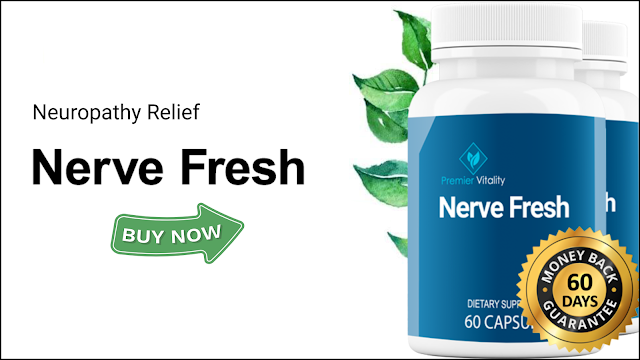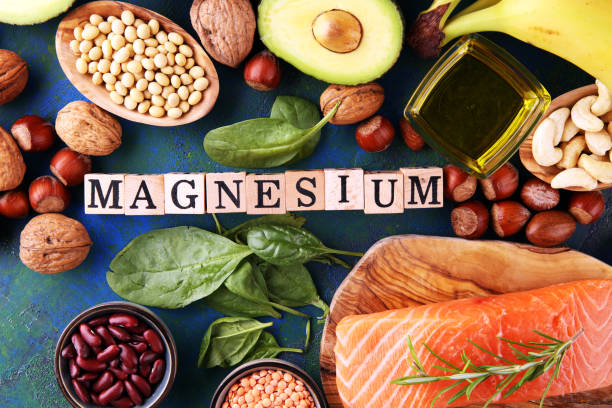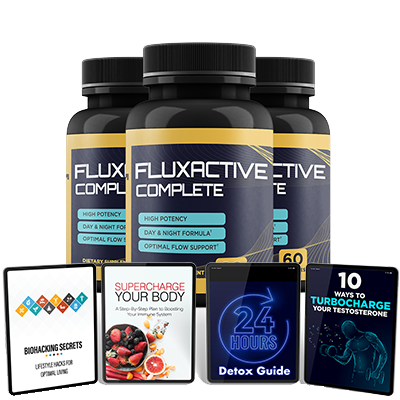Living with nerve pain is like walking on glass. Every step, every moment, feels unpredictable. If you’ve been hunting for real relief without nasty side effects, Nerve Fresh might just be what your body’s been begging for. Let’s break down everything you need to know about this plant-powered nerve support formula—and why people are swearing by it.
Why Nerve Health Matters More Than You Think
Think nerve pain is just “part of getting older”? Think again.
When your nerves start misfiring—whether from inflammation, poor circulation, or years of stress—you’ll know it. Tingling, burning, numbness, and even stabbing pain can become part of your daily reality. Left untreated, this damage can worsen over time.
That’s why early support is critical—and why many are turning to natural solutions like Nerve Fresh.
What Is Nerve Fresh?
Nerve Fresh is a natural dietary supplement specifically formulated to soothe nerve discomfort and promote healthy nerve function. It blends bio-available fruit, flower, and bark extracts with essential vitamins and minerals that your nerves need to function at their best.
And no, it’s not just another generic pill. This one is crafted to target nerve pain at the root—while avoiding the groggy, foggy side effects that come with many pharmaceuticals.
The Science Behind Nerve Pain and Discomfort
What Causes Nerve Issues?
Your nervous system is basically your body’s communication highway. When it’s inflamed or damaged, the “wires” don’t work right. Here’s what usually triggers the breakdown:
-
Inflammation from chronic stress or illness
-
Diabetes or poor blood sugar control
-
Toxic buildup (hello, modern lifestyle!)
-
Nutrient deficiencies
-
Physical injuries or repetitive strain
Common Symptoms You Shouldn’t Ignore
-
Pins and needles in hands and feet
-
Shooting or burning pain
-
Weakness in limbs
-
Feeling like your skin is on fire (but it’s not)
These aren’t just “annoyances.” They’re warning signs.
Why Natural Support Is the Smarter Option
Big Pharma loves to slap a bandage on symptoms. But Nerve Fresh takes a root-cause approach—supporting your body with natural ingredients proven to calm, nourish, and repair nerve cells.
For better results, please try this: https://bit.ly/nervefreshsupplements
What Makes Nerve Fresh Stand Out?
The Power of Bio-Available Ingredients
The body doesn’t just need good ingredients—it needs to absorb and use them. Nerve Fresh uses bio-available extracts, which means your system can actually break them down and put them to work where it’s needed most.
5 Key Natural Extracts (Fruit, Flower & Bark)
This formula includes five power-packed botanicals known to:
-
Calm nerve firing
-
Reduce inflammation
-
Improve circulation
-
Promote better sleep and relaxation
Vitamin & Mineral Support – More Than Just Herbs
This isn’t just a “herbal blend.” It’s a comprehensive formula that includes critical micronutrients that keep your nervous system firing properly.
A Closer Look at the Ingredients
Passion Flower – Nature’s Chill Pill
Used for centuries to ease anxiety, Passion Flower helps calm an overactive nervous system—perfect for those random “zaps” of nerve pain.
Marshmallow Root – A Soothing Ally
Not just for s’mores! Marshmallow root is known for its mucilage content, which coats irritated nerve endings and promotes comfort.
Corydalis – Ancient Nerve Calmer
This traditional Chinese herb is one of the best-kept secrets for natural pain relief. It works much like a mild sedative, helping to ease sharp, shooting sensations.
Prickly Pear – Antioxidant Armor
Rich in anti-inflammatory compounds, this desert fruit helps combat oxidative stress, which is often the hidden villain behind nerve degeneration.
California Poppy – Your Sleep & Pain Friend
Need better sleep? California poppy not only promotes deep rest but also works as a gentle nerve tonic—perfect for nighttime relief.
Essential Vitamins & Minerals That Reinforce Recovery
Think B12, magnesium, and other nerve-loving nutrients that:
-
Repair damaged myelin (the sheath around your nerves)
-
Support better nerve transmission
-
Reduce fatigue and numbness
Benefits of Using Nerve Fresh Daily
Relief From Tingling, Burning, and Numbness
That annoying “buzz” in your feet or hands? Nerve Fresh helps turn down the static by calming hyperactive nerves.
Better Sleep and Less Stress
Many users report sleeping more deeply and waking up with less stiffness or irritation. Stress goes down, and so does discomfort.
Enhanced Nerve Repair and Function
The combo of plant extracts and vitamins gives your body what it needs to start repairing instead of just masking pain.
Safe, Non-Habit Forming Support
No side effects. No dependency. Just real support from real ingredients.
Real People, Real Results
What Users Are Saying
“I’ve tried everything, and this is the first product that actually made a difference. My feet used to burn every night. Now I sleep like a baby.” – Karen, 61
“It took about a week to kick in, but once it did, my fingers stopped feeling like they were on fire.” – James, 55
Why Customers Stick with Nerve Fresh
Once you find something that works—and doesn’t make you feel like a zombie—you stick with it. That’s why Nerve Fresh has a high reorder rate and positive feedback loop.
How to Use Nerve Fresh for Best Results
Recommended Dosage and Tips
Take two capsules per day, preferably with a meal. Consistency is key—don’t skip days. Drink water, stretch, and let the formula work its magic.
When to Expect Results
Some people feel relief in 3-5 days, but for deeper healing, give it a full 30 days. Your nerves didn’t get wrecked overnight—don’t expect overnight miracles (but do expect change).
Is It Safe? Any Side Effects?
Who Should (and Shouldn’t) Use It
Nerve Fresh is generally safe for most adults. However:
-
If you’re pregnant, nursing, or on serious meds, check with your doctor
-
Avoid if you’re allergic to any of the listed herbs or ingredients
No major side effects reported—just better sleep, calmer nerves, and less pain.
Where to Buy Nerve Fresh
Pricing, Packages, and Refund Policy
You can only get Nerve Fresh through the official site. This ensures quality and prevents knockoffs.
-
1 bottle: $69
-
3 bottles: $177 ($59 each)
-
6 bottles: $294 ($49 each)
All come with a 100% money-back guarantee for 60 days. That’s how confident they are.
Special Offers Available Now
Click here 👉 https://bit.ly/nervefreshsupplements
Don’t wait—these discounts may disappear soon.
Final Verdict – Should You Try Nerve Fresh?
If nerve pain has been stealing your sleep, your peace, or your ability to just enjoy life—then YES, Nerve Fresh is worth a shot. It’s safe, natural, and designed to help your body heal, not just cope.
Life’s too short to be walking on pins and needles.
FAQs About Nerve Fresh
1. How long does it take to see results with Nerve Fresh?
Most users report changes within a week, but full results may take 30 days of consistent use.
2. Can I take Nerve Fresh with other supplements or medications?
In most cases, yes—but always talk to your doctor if you’re on prescribed meds or have health conditions.
3. Is Nerve Fresh suitable for diabetics?
Yes. Many users with diabetes report relief from nerve-related symptoms. But again, consult your healthcare provider.
4. Will it make me drowsy or affect my mental clarity?
Nope. It calms the nerves without sedating your brain. Many people say they feel more clear-headed.
5. Is this a one-time purchase or a subscription?
You can choose either. One-time purchases are available, or you can subscribe for automatic refills.
.png)





















.png)
